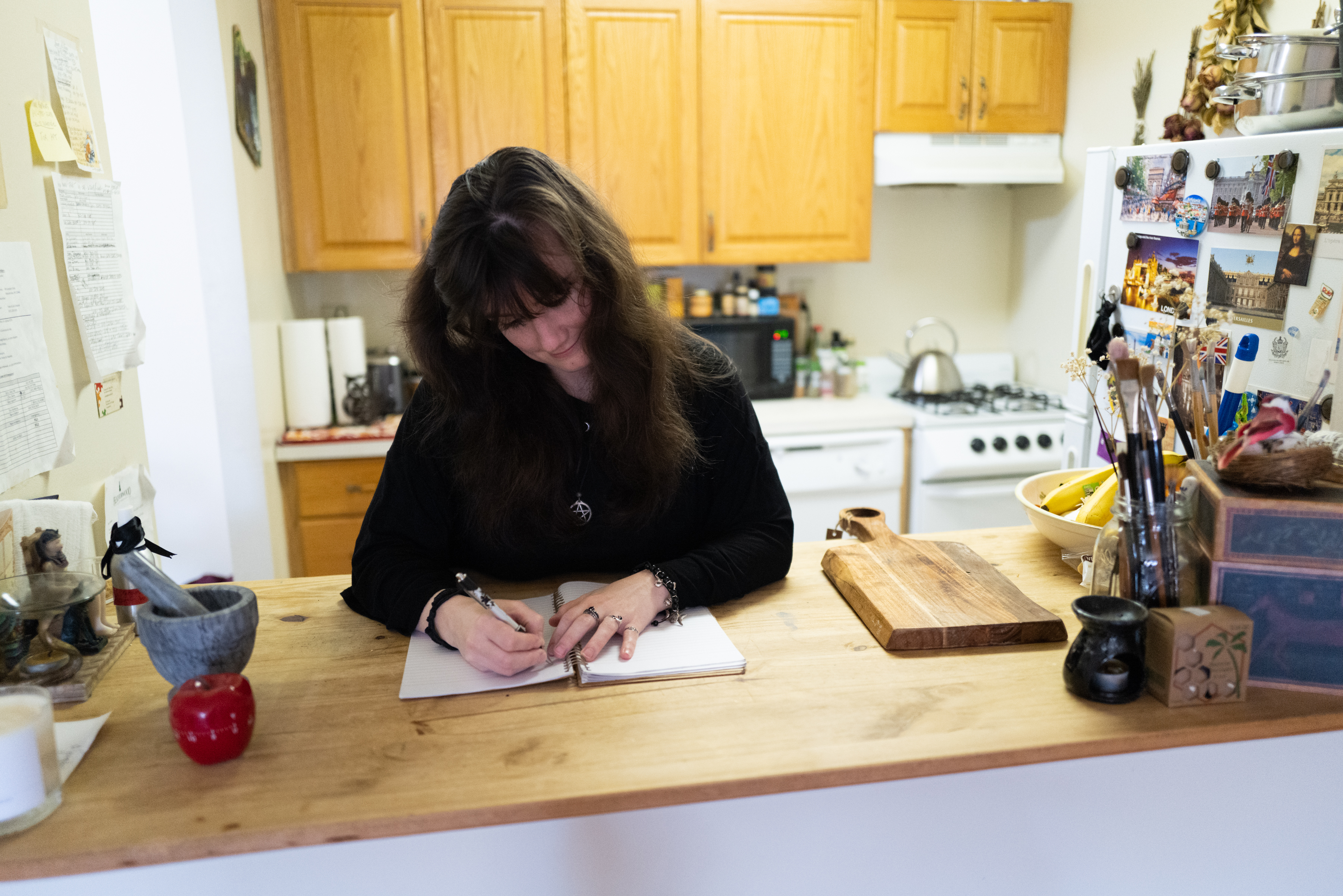
From the outside, Jane Simone is a mild-mannered, quiet girl, a bookworm just trying to get through high school. She is invisible — and part of her prefers it that way.
But when a thief steals a prized pendant from a museum, she knows what she must do. Tapping her inner confidence, she transforms into a mystery-solving sleuth, breaks into his mansion in East Hampton and exposes him for the criminal he is.
This is just the start of the adventure for the amateur detective, who calls herself Black Rose. And as J’aime Schiavoni wrote the character and her escapades, she uncovered a part of herself, too.
“Maybe it’s a little sliver of the J’aime you want to be and whatnot — my alter ego, if anything,” she said from her home in Hampton Bays. “Maybe in a different universe or whatnot, that would be me.”
Concealed by her cape and mask, Black Rose is dauntless, ingenious, inventive, wily, alluring, resourceful and cunning. And while listening to Schiavoni recite a few of her lines, it is clear that the heroine has lived inside her all along — even as she faced relentless bullying as a child, experiences that have stayed with her for over a decade, as a result of her autism and related disorders.
Today, as published author of “The Black Rose,” she has risen above it, she said, and stands as an example of what’s possible.
“That’s what I’m hoping for,” she said. “So no matter what a kid’s going through, be it a learning disability, or just being of a different race or color, or nationality — you get the point — I just want them to know I at least believe they can do anything as long as they persevere.”
From the time she was in sixth grade, Schiavoni knew she wanted to be an author. One of her teachers encouraged her to create her own stories and try to read them, and she has been writing “The Black Rose” ever since, she said. Inspired by Robin Hood, she crafted her heroine as a girl who fights back in the face of adversity, standing up for others who feel small or are put down.
That element of the story is also her own, she said.
“I was part of the misfit group that society just needs to torment,” she said. “A handful of teachers did help me, I will give them that. The other ones — sensitive word, sensitive word — persecuted me, didn’t understand, belittled me, basically didn’t say I could be much, as well as other students. But that just made my drive more, to prove them wrong.”
Mary Johnsen, who is the director of special education at Wainscott School, met Schiavoni when she was in elementary school, she said, and became her volunteer advocate as she navigated the local school systems and blossomed into an adult — one she now describes as strong-willed, blunt, intuitive, compassionate and, perhaps above all else, endlessly creative.
“This is a triumph,” she said of Schiavoni publishing her book. “This is a child that they felt would never read. This is a child they felt was limited by what she would accomplish in her life. And she’s a very resilient individual who pushed through.”
“The Black Rose,” which is available online through Barnes & Noble and Amazon, comprises a series of vignettes that takes readers on a mysterious, suspenseful journey through the sleuth’s adventures. Schiavoni dictated much of the book, which was then edited, and often practiced method writing, dropping into Black Rose’s character to write as accurately as she could.
“I know it’s silly, but I like to get a feel of what items she’s stealing or how the costume feels sometimes; I would put myself in that position,” she said. “Say this bracelet and whatnot, I would get something like that and how would it feel to take this? What would she have to go through? I know it’s a little silly.”
Johnsen quickly reassured her that it wasn’t, pointing out that the writing process has allowed her to show her gifts and talents, and to be authentically herself.
“Well, basically it lets you come alive,” Schiavoni said.
In addition to writing, the author has taught herself archery and learned martial arts, and loves nature and all things witchy. “She wishes she could find a coven out here,” Johnsen said.
She is also an artist. Her work can be seen on the cover of “The Black Rose” and its upcoming sequel, “The Black Rose: Shadow Under the Moon.” She is working on the third story of the new volume, she said, continuing to fulfill her dream of being an author and embracing her neurodivergence.
“Sometimes, it did feel like I was a phoenix in a flock of pigeons,” Schiavoni said.
“And a phoenix rises up,” Johnsen said. “We’re all in this human race together and we have to learn to appreciate everyone’s differences and raise everybody up. So you were able to say, ‘This is me.’”